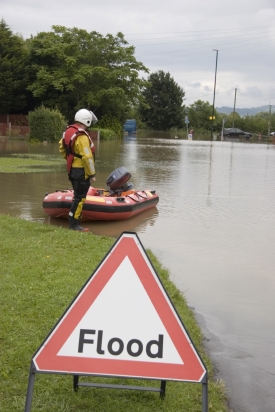

What price? - An opinion piece on natural disasters

By Jelenko Dragisic
Natural disasters, like armed conflicts, cause major problems. Both have been part of life since the dawn of humankind. However, while on one hand most of us have gained a deep understanding of how wars affect our lives, many have come to view natural disasters with a degree of indifference. How we respond to the destruction of war is often very different from the manner in which we deal with the damage caused by natural disasters. There is often a higher social cost associated with natural disasters that is often overlooked. Yet, based on my personal experience in helping survivors of both wars and natural disasters, I have come to believe that we need to do more if we are to maintain the social stability we enjoy today.
While Australia, with its stable democracy and prosperous economy, does not fear internal armed conflict, we should not forget that natural disasters can have a devastating impact on individuals and communities alike. Natural disasters, which are increasingly viewed as a result of climate change, pose a threat to what has been built over the decades. Observing how individuals who escaped war behave in refugee camps, compared to those in emergency evacuation centres which are put together in response to natural disasters, taught me to view natural disasters in a new light. There are some striking similarities between what happens in refugee camps and what happens in evacuation centres when natural disasters strike.
Many years ago I experienced life in refugee camps, having fled my native country at the outbreak of war. My country, which I had always thought of as safe and everlasting, became a nightmare that provided fodder for worldwide press. I joined the hordes of people flooding the gates of European nations willing to help those escaping war. I soon found out that people in refugee camps are not much different to any other groups one might come across – families, couples, young people, old people, the well educated, working classes and so on. Each person’s story is unique. Each experiences displacement in their own way; worrying about those left behind, wondering about the future and trying to make sense of what is going on. There’s anger at the powers that be for not preventing the hostilities, there’s sadness about the end of life as they knew it, and there’s also hope for a better tomorrow.
More recently, in entirely different circumstances, I worked at an emergency evacuation centre in Emerald in Central Queensland where I was one of many helping those who had to leave their homes as a result of heavy flooding. Again I saw families, the young and old, the anxious and the frightened. Floods may not be as dangerous as wars but they do take lives, hurt people and damage entire communities. Natural disasters test our resilience. They may not destroy communities but they create deep social, economic and cultural wounds which even the most stable and richest democracies cannot ignore.
We should not be fooled into thinking that people who spend a week or two in an emergency evacuation centre are less affected than those who live for months, or even years, in refugee camps. The length of displacement is significant, but the shock and trauma of being displaced is of much greater consequence in the long term. We need to realise that as natural disasters become more frequent, we are in line for an increased number of people who will experience that trauma. This clearly means that we will have to go beyond thinking that organising an evacuation centre, handing out cash and offering some initial psychological first aid will do. It won’t.
We need to start to look at the successes we have had in the past as a society where we worked on developing social stability by ensuring that a strong economy, as well as a solid democracy, flourishes. It may be time to start considering the many dimensions of natural disasters. Environmental damage is one element, just as social resilience, especially in smaller and remote communities, is another. How we prepare for and deal with social disruptions caused by natural disasters depends a great deal on our willingness to stop assuming that a stable democracy, backed by a thriving economy, will insulate us from social tremors.
Copyright © Green Cross Australia | Terms & Conditions | Privacy Policy
web design brisbane :: (zero)seven

